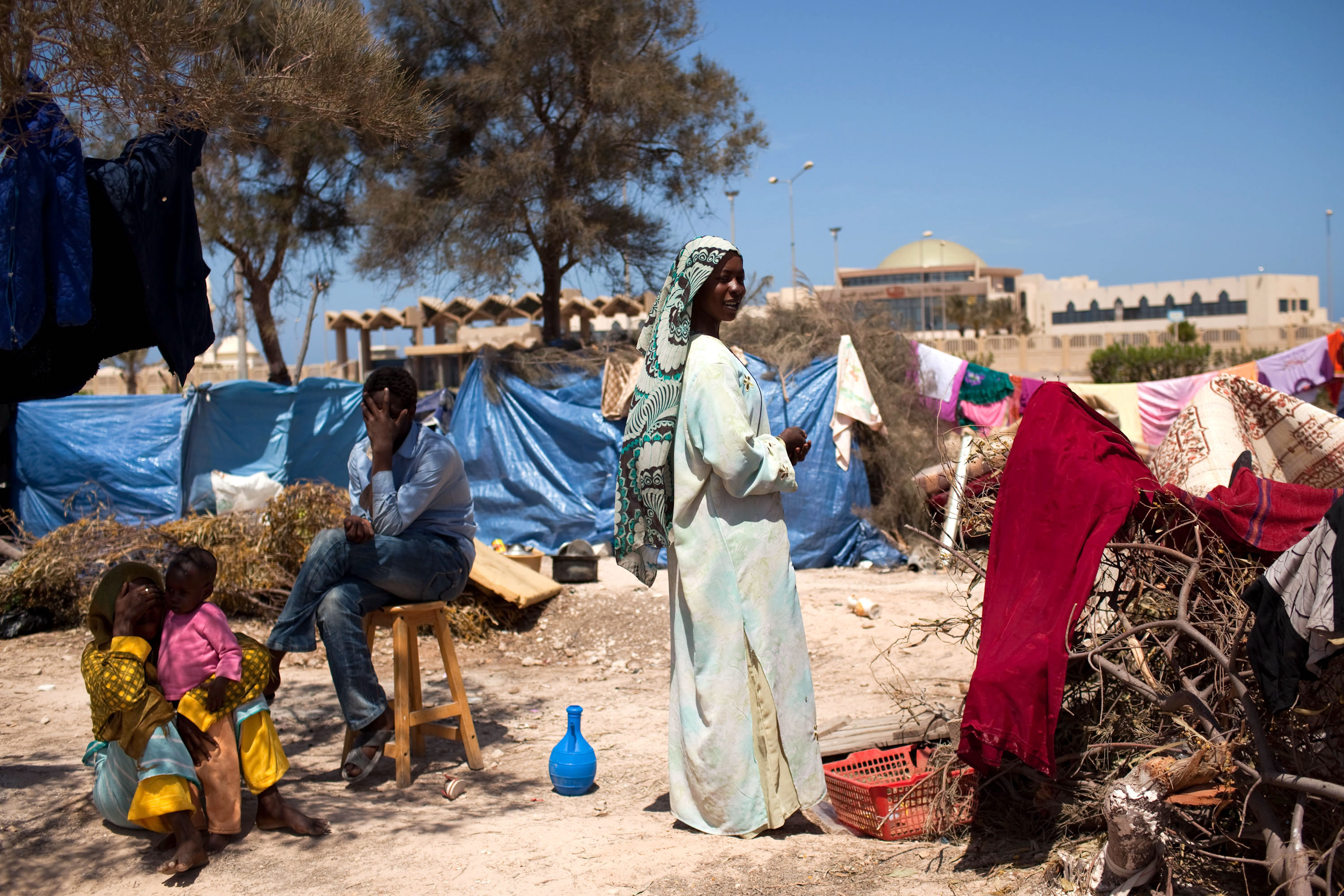Twelve years on from Libya’s revolution, the country remains fragile. The government has limited reach, with de facto power exercised by competing armed groups.
Libya’s instability and lack of state control have helped drive a massive rise in the country’s illicit economies. Fuel smuggling is endemic, with networks moving large volumes within Libya and to neighbouring countries. Drug syndicates have converged on the country, using it as a depot for the storage, sale and regional trafficking of cocaine, hashish and other narcotics. Libya is also a key departure zone for irregular migrants crossing the Mediterranean to Europe.
These illicit markets have exacerbated Libya’s fragility. Armed groups protect and tax smugglers as they transit areas under their influence. This increases the groups’ power and fuels violent competition over territory. Severe human rights violations are also linked to illicit markets, particularly human smuggling.
International actors — mainly the United Nations (UN), European Union and United States — have turned to targeted financial and visa sanctions against those involved in or profiting from the illicit economy. Penalties are generally aimed at those linked to human smuggling, though some have targeted contraband fuel or drug traffickers.
The focus is generally on high-profile individuals within networks, often middlemen or mid-level leaders. Only one group, Zawiya’s Awlad Buhmeira network, has had multiple members sanctioned.
Since sanctions were first levied on criminals in 2018, questions have arisen about their effectiveness. Critics point out that most sanctioned Libyan actors live openly, remain involved in crime, and hold influence. One Libyan told the Enact project that those penalised were “still making money and still travelling to Tunisia and Turkey.”
Libya’s illicit markets also continue to thrive. Migrant departures from the country to Europe are reportedly at their highest point since 2017. The durability of crime in Libya seems to point to a failure of sanctions and other Western interventions. While these are valid criticisms, they overlook how sanctions have forced changes in the nature of Libya’s illicit markets.
First, they have led to a shift in ways that sanctioned and non-sanctioned individuals engage in illegal economic activity. Libyan interviewees and foreign experts note cases in which criminals worry about the risks that sanctions bring. As a result, many have lowered their profiles and adapted their activities, such as building diffuse networks or operating through partners.
Interviewees say some have sought to secure offshore assets under relatives’ names. Others have curtailed their involvement in illicit activities targeted by sanctions. Interviewees say in one case, a high-profile individual linked to fuel smuggling reportedly lobbied his network to exit the trade to limit sanctioning risks.
Second, sanctions have shaped armed groups’ involvement in illicit economies. The most dramatic example is human smuggling. Along with diplomatic pressure, sanctions have resulted in many armed groups winding down their operations or lowering their profiles to limit their risk of being penalised.
Other groups have become involved in countering migration — by arresting migrants or intercepting their vessels — to improve their public image and enhance their legitimacy. But such approaches don’t generally stop human smuggling — instead, they lead to a more nuanced and deliberate approach.
Finally, sanctions have had a noticeable effect on shaping the ecosystem in which illicit economic actors operate. Many interviewees told Enact about the negative reputational impact in Libya of being sanctioned, particularly around human smuggling and trafficking. This has influenced how other actors interact with sanctioned persons.
An example is Abdelrahman Milad ‘al-Bidja’, a naval officer sanctioned for his links to human smuggling. Military commanders reportedly asked him not to publicise his presence at the frontlines during the 2019-20 War for Tripoli, largely because of his reputation as a sanctioned individual.
Sanctions alone not enough
Such impacts have arguably influenced how criminals make decisions, altering their methods of operation, use of abuse and violence, and perceptions of impunity. Nonetheless, approaches to sanctions need to be improved, especially since the international community is likely to continue using sanctions in Libya.
The first area for improvement is broadening sanctions beyond individuals in a crime network, to multiple actors or the ecosystem supporting the network. As one former UN official told Enact, “If one person suffers some consequences while everyone else keeps making millions, it isn’t enough of a deterrent”.
Second, sanctions should be strategically designed to build on existing trends and limit fallout. This involves closely assessing trends around Libya’s illicit economies, with designations designed to dovetail with the changing dynamics.
Sanctioning decisions should also be influenced by a conflict sensitivity assessment. Unintended consequences may occur if groups involved in both governance and factional politics are targeted. Penalising some actors while ignoring their rivals, for example, can be seen as the international community picking sides. That perception could destabilise delicate local situations and undermine the overall credibility of international efforts.
Third, there should be a follow-up to designations. Sanctions should not be a fire-and-forget tool, but one that continues to be fine-tuned around different individuals and networks. Regular assessments of enforcement weaknesses and points of influence should be conducted.
Finally, sanctions should be used only as part of a broader, defined strategy to address illicit economies. In combination with other tools, it is possible to build up Libya’s capacity to address the challenge even as sanctions press down, achieving more durable, lasting effects. Alternate tools include prosecutorial approaches, local law enforcement capacity building, and development aid to communities at risk of criminal infiltration. DM
Dr Matt Herbert, Senior Expert, Global Initiative Against Transnational Organized Crime, Enact project.
Enact is funded by the European Union and implemented by the Institute for Security Studies in partnership with Interpol and the Global Initiative against Transnational Organized Crime.
First published by ISS Today.




